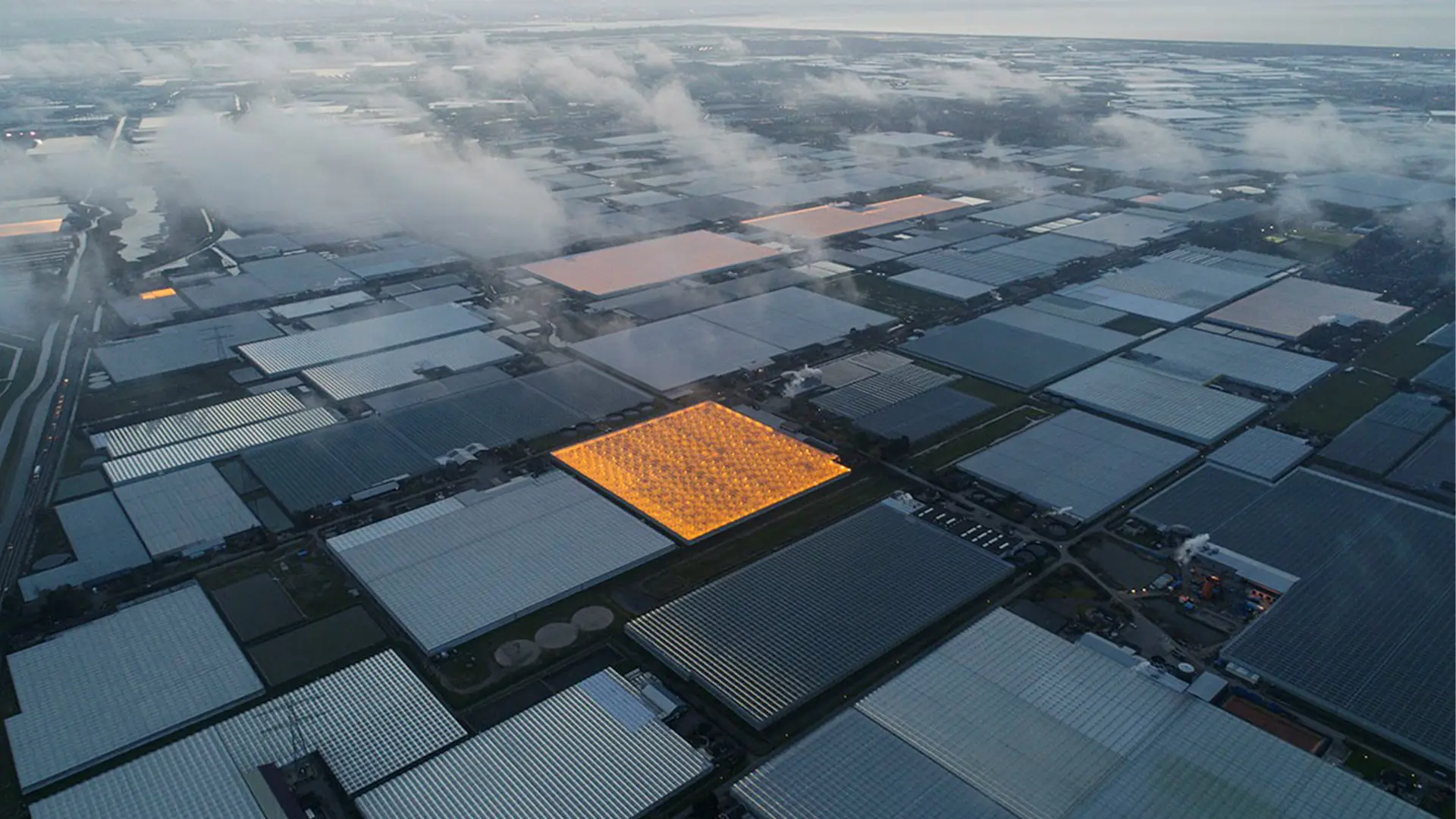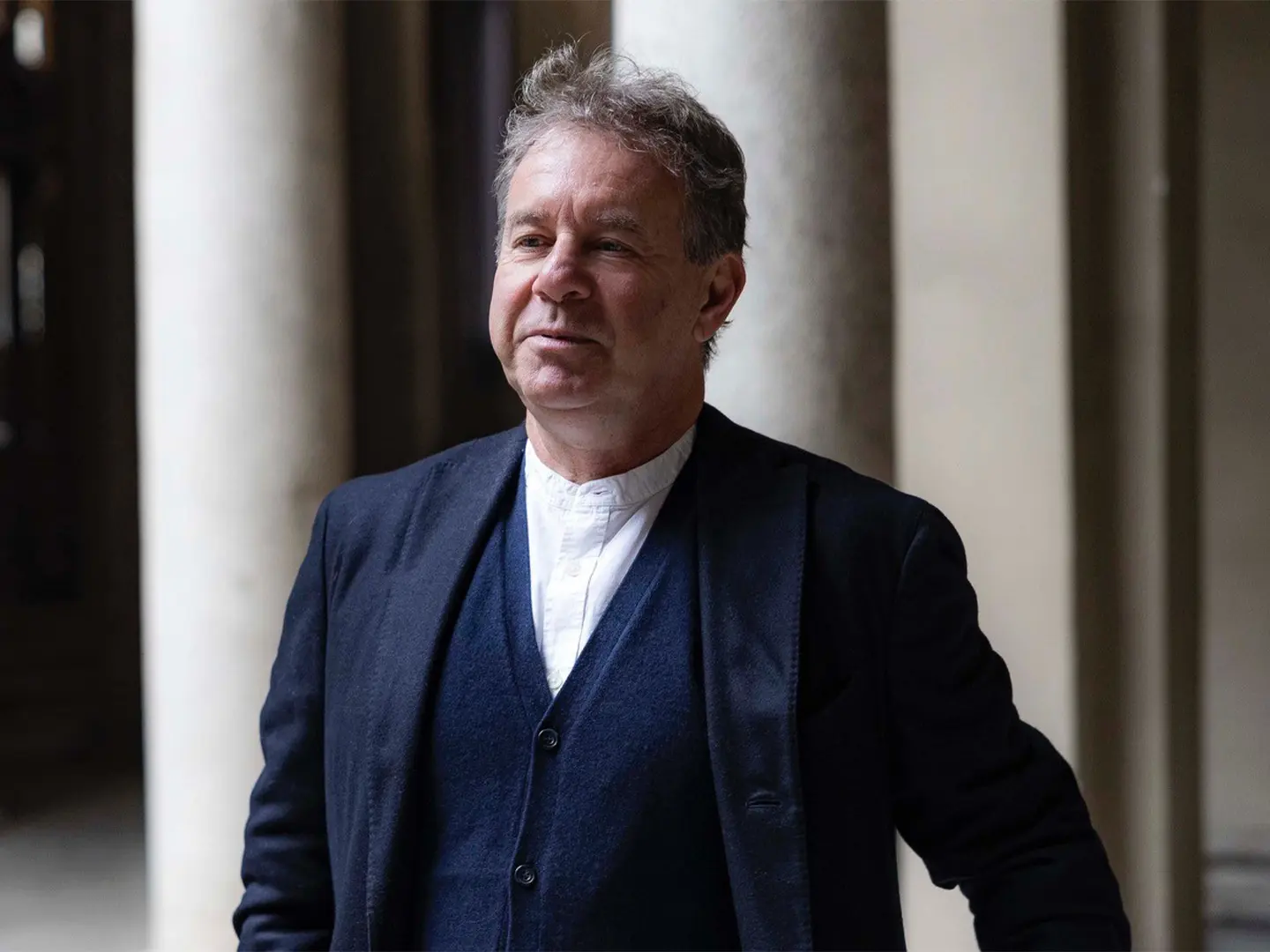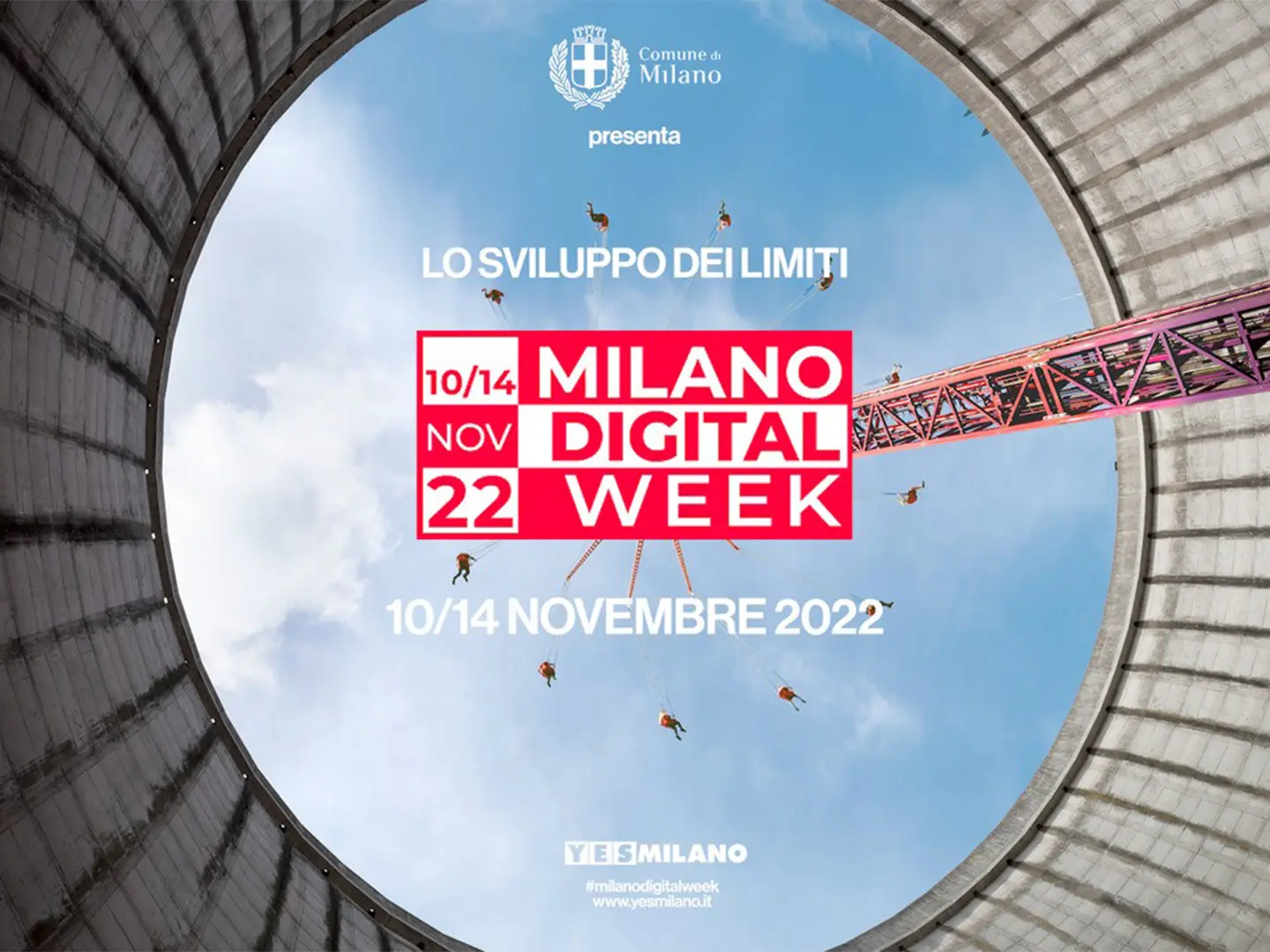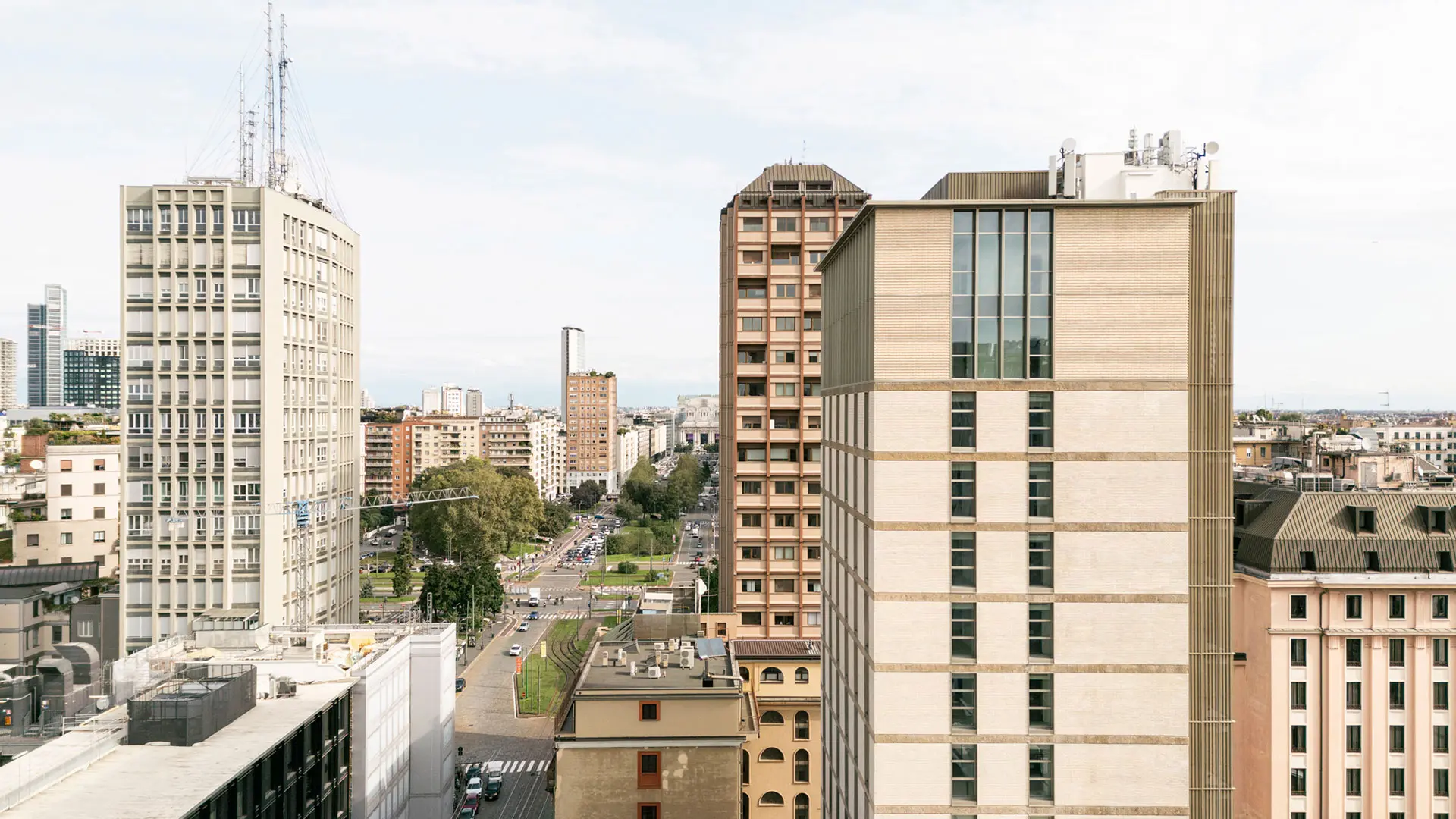In partnership with MiCodmc, a selection of establishments ripe for discovery during the 63rd edition of the Salone del Mobile.Milano, from 8th to 13th April
Nicola Zanardi tells the Milano Digital Week 2022

Photo Luca Locatelli
The fifth edition of Milano Design Week was held from 10th to 14th November in Milan. The events on this year’s programme were inspired by the theme of development within limits, tackling ecological, political and social issues. The event’s curator Nicola Zanardi told us about the event
The fifth edition of Milano Digital Week has just drawn to a close. After a distanced two years, the event, which in past editions has seen the participation of over a million people, was back live for its fifth edition and boasting more than 400 events. This year, the 4 days of events devoted to digital revolved around the theme of development within limits. A subject that is more relevant than ever, given that the world’s population has now reached 8 billion, and one that poses a complex but necessary challenge.
The Development of Limits, the overarching title of the event, celebrated the 50th anniversary of the first report published by the Club of Rome in 1972 and the work carried out by researchers at MIT (Massachusetts Institute of Technology) in Boston I The Limits to Growth, the first “ecological” critique of the Western production model in constant expansion. This fifth edition explores large and small contemporary problems – from ethical issues bound up with privacy and to algorithms, to socio-economic inequalities, not to mention the issue of work-related environmental impact and the problems involved with artificial intelligence, education and teaching and health services that have to be able to constantly adjust to new challenges, not least that of increased longevity.
Nicola Zanardi, CEO of Hublab and curator of the event, talked us about the choice of theme, the events, and present and future expectations.
This year’s theme was The Development of Limits. 50 years ago, a group of environmentalists, who called themselves the Club of Rome, asked MIT to carry out a research project. The idea for the research came from Aurelio Peccei, a director of FIAT and then Olivetti who, at that particular time, was concerned about uncontrolled development on a planet with finite resources. The study led to a series of reflections that over time turned into confirmations, and the forecasts for the second half of the 21st century have already come true. This year marks the 50th anniversary of the Club of Rome report, and the deliberations around this year’s edition of MDW identified this report as our starting point. We’ve already moved into a new century, with our minds still turning towards the 20th and the issues bound up with serial production and the continuity of relationships and work. While university was once a social lift that took us to the place in society that we continued to occupy for the rest of our working lives, this paradigm started to be overturned from the 1970s onwards.
Furthermore, the average age has risen enormously, which leads into the issue of consumption and the right to consumption. We therefore decided to revisit these themes, and provide an inclusive opportunity for discussion around the issue of development within the limits of the contemporary world. This approach brings together visions and projects in a hyper inclusive way -we see ourselves as a container able to accumulate contributions from a large number of people. The question we therefore asked this year was “how will we develop in the future?” bearing in mind that the word ‘development’ may indeed become an oxymoron in the near future.

Nicola Zanardi, Milano Digital Week curator
The development of limits is bound up with the question of how these limits should be respected. When we think about the Metaverse or blockchains, what is their environmental impact? What we have seen over the last few years is a sort of polarisation of resources and wealth. Digital, on the other hand, can cross the frontiers of this polarisation in that it’s an inclusive medium. I believe digital to be an enabler of knowledge, an enabler of relationships and visions. The themes were incredibly diverse, the theme of work for example – we pondered how and what work would look like in this millennium, linked to the typical 20th century issue of personal identification with work role, in the awareness that this concept is changing hugely. Given that there will be increasingly less work and that it will be increasingly fragmented, how can we get communities that identified with work to talk to those that are no longer involved?
One subject that, as part of MDW, I believe should be tackled is precisely that of inclusivity, there’s a little space just for you too, in which you can put your own point of view to anybody.
Milan is a city that always responds extremely well to MDW’s call. This year, due to some organisational delays, the call went out on 27th July and despite the August break, we had already fielded almost 300 applications by mid-September. This means that the Milan city system is keen to take part.
I think the participation of Milan is the most surprising thing. When we launched the first edition, there were obviously some people who had their doubts about the success of the project, also because one of the criticisms was sparked by the idea that digital meant everything and nothing. What we ended up doing from the first year onwards was in fact what I alluded to earlier, i.e. managing to curate a democratic space in which people could express their own opinions. This was something Milan lacked, which is why the first year saw the mass participation of all the universities in the region, for instance. Also because we have always tried to choose a theme as a banner for the interventions. I believe Milan to be a sort of hub, it has always been part of the connector and the showcase of an entire industrial sector creating innovation.
Clearly this role has changed with the advent of digital, one no longer has to physically be in Milan to make contact with other countries, but Milan’s role as a connector should be pursued and cultivated. The city needs to try and redesign itself, and in our own small way we try to provide a space, a channel for new voices.
I think there were a lot of interesting events over the four days. For the opening on the first evening, in a rather ‘pop’ vein, the actor, filmmaker and dubber Massimo Popolizio took to the stage to interpret the contents of the 1972 MIT Limits to Growth report, in what we believe was an extremely important moment.
Then there were a number of museum-linked themes - many of this year’s events were organised by ADI Design Museum, where we organised a whole afternoon’s event that we called Orizzonte Museale (Museum Horizon) and showed what has been done for digital on this theme along with Google. Another event I found most interesting was organised in tandem with MIND, Milano Innovation District, on the theme of ‘designing the city’s software.’ We realised that real estate companies are starting to invest money, time and energy in projects geared to the development of communities. Large-scale projects are no longer awarded to figures we would formerly have described as Archistars, but to multicultural figures capable of bringing together different skills and generating humus for the growth of communities.
The Milan Digital Week therefore concluded with the success that has distinguished it over the last few years, and we are looking forward to the sixth edition of the event next year, curious to find out what the overarching theme for the week will be.

Milano Digital Week 2022, image courtesy


 Stories
Stories










